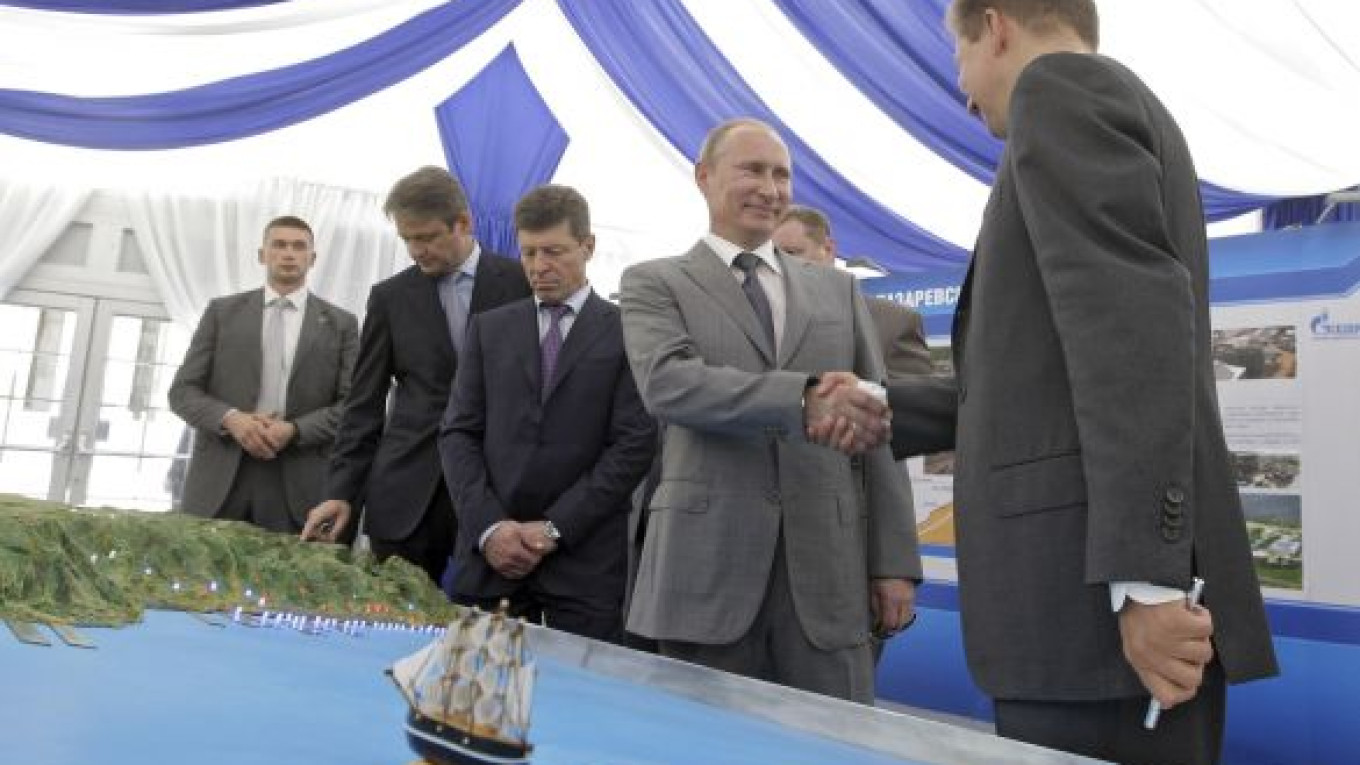Viable legislation for lowering the social tax burden on companies, a key part of President Medvedev's modernization agenda, has not been put forward by the government, prompting suggestions of a schism between the White House and the Kremlin.
The June 1 deadline for an official suggestion on how to lower the 34 percent tax on payroll for companies — imposed by Medvedev during a landmark March speech in Magnitogorsk — has passed without a constructive proposal from Prime Minister Vladimir Putin's government.
In an effort to resolve the impasse, presidential economic aide Arkady Dvorkovich suggested that the corporate income tax rate be raised to its pre-crisis level of 24 percent, Vedomosti reported Monday, offsetting the budget losses that would be entailed by dropping the tax on payroll, covering insurance and pensions, eight percentage points to its 2010 level of 26 percent.
But this compromise solution has been met with hostility from business groups and experts who contend that any rise in corporate income tax would run counter to Medvedev's goals of modernization and an improving business climate.
"It [would be] a contradictory approach," Alexander Osipov, vice president of Delovaya Rossia, an organization that represents small and medium-sized businesses, told The Moscow Times. "There are [other] taxes that would not affect economic development, modernization or the abilities of companies to raise their effectiveness."
He cited levies on alcohol, tobacco and the oil and gas extraction industry as well as dividends paid by state companies as sources that could be mined for the budget without damaging the economy.
"If the government's strategy is to stimulate investment, modernize the economy and increase its efficiency, then a higher corporate income tax is a no-go," VTB Capital said in a research note Monday. "The current proposal would be a wrong signal to business."
Medvedev described the 34 percent tax rate, introduced by Putin's government, as "unbearable" on March 30 in Magnitogorsk.
Though Putin has also said the rate must be changed, he has been less clear on the time frame. In a May 26 speech he refused to give any "final parameters" for potential alterations.
It is not the first policy statement outlined by Medvedev in Magnitogorsk that appears to be stalling. First Deputy Prime Minister Viktor Zubkov was listed by Gazprom as a candidate for its board of directors — despite a deadline set by Medvedev for all government ministers to vacate their seats on the boards of state companies before Oct. 1.
The rise in the social tax burden that came into force on Jan. 1, 2011, prompted many companies to revert to practices whereby they paid employees part of their salaries in cash-filled envelopes.
The chief executive of a midsized Moscow manufacturing company who requested anonymity said the measure had forced companies to "disappear further into the shadows" and pay "black wages."
He contrasted struggling medium-sized firms similar to his own with, "companies like Gazprom that are prepared to pay any sum of money to people who do absolutely nothing."
"Before the elections they can [talk about] lowering [tax burdens], but in a year they will double them," he added, "you just end up with a weird sort of game."
A Message from The Moscow Times:
Dear readers,
We are facing unprecedented challenges. Russia's Prosecutor General's Office has designated The Moscow Times as an "undesirable" organization, criminalizing our work and putting our staff at risk of prosecution. This follows our earlier unjust labeling as a "foreign agent."
These actions are direct attempts to silence independent journalism in Russia. The authorities claim our work "discredits the decisions of the Russian leadership." We see things differently: we strive to provide accurate, unbiased reporting on Russia.
We, the journalists of The Moscow Times, refuse to be silenced. But to continue our work, we need your help.
Your support, no matter how small, makes a world of difference. If you can, please support us monthly starting from just $2. It's quick to set up, and every contribution makes a significant impact.
By supporting The Moscow Times, you're defending open, independent journalism in the face of repression. Thank you for standing with us.
Remind me later.


